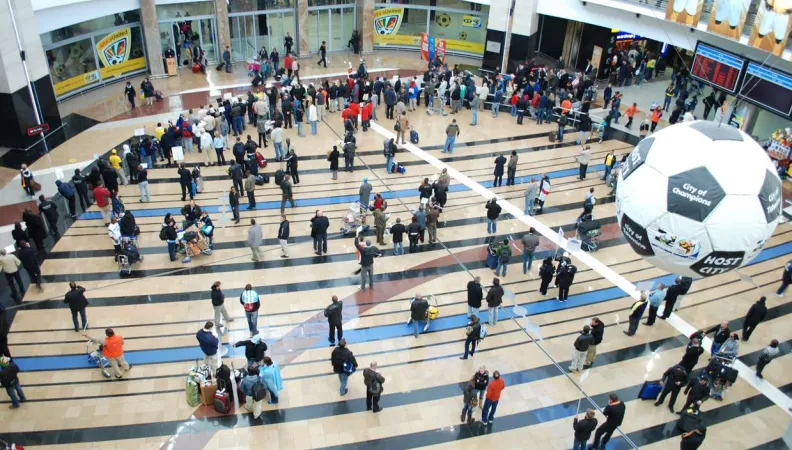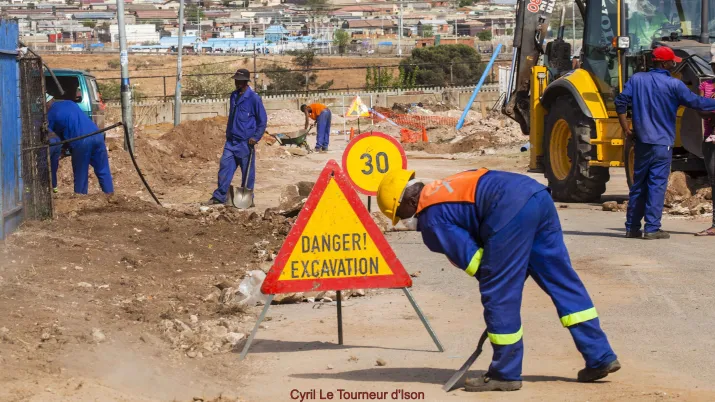Share the page
Cash transfers and economic recovery: The effect of South Africa’s Covid-19 grant on productive economic activity

-
Project start date
-
2021Status
Completed
-
Project end date
-
2023
-
AFD financing amount
-
20 000
-
Country and region
-
Partners
-
Research program
The fear that cash transfer programs (or social grants) can discourage labor market participation is common among policymakers locally and around the world, including in South Africa. To refute or confirm this fear, the Extension of the EU-AFD Research Facility on Inequalities worked with the Development Policy Research Unit (DPRU) of the University of Cape Town to analyze the impacts of the Covid-19 grant on labor market recovery and investment in productive activity in South Africa.
Context
In South Africa, the social grant system is relatively comprehensive in scope, directly benefiting one in three individuals, and mainly empowering the most vulnerable such as children, the elderly and people with disabilities from poor households. Despite the progressiveness of this system, there remains a lack of assistance to the unemployed, who are presumed to be able to support themselves through the labor market (Ferguson, 2015). However, such a view overlooks the widespread and structural nature of unemployment in South Africa, where over 70% of the unemployed have been unemployed for more than a year.
In this light, the expansion of the country's social grant system in response to the Covid-19 pandemic played an important role in filling this gap. On the margins of the system, a special Covid-19 grant of R350 was introduced to support this previously unreached and important group of unemployed adults. With one of the highest official unemployment rates in the world (32.6 percent in the first quarter of 2021), the grant was an important form of support for millions of vulnerable adults and was the first to use an explicit labor market eligibility criterion that could be considered a "labor market vulnerability transfer."
This project is part of the Extension of the EU-AFD Research Facility on Inequalities. Coordinated by AFD and financed by the European Commission, the Extension of the Facility will contribute to the development of public policies aimed at reducing inequalities in four countries: South Africa, Mexico, Colombia and Indonesia over the period 2021-2025.
Objectives
Conducted by the UCT-DPRU team, the objective of this research project was to quantitatively study whether the Covid-19 grant acted as a source of labor market recovery by leading to increased investment in productive labor market activities.
To do this, the research aimed to provide a detailed and quantitative descriptive analysis of transitions in labor market outcomes among Covid-19 grant recipients (measuring whether individuals moved from vulnerable to more productive activities, for example), as well as an analysis of the correlation between grant receipt and labor market outcomes. Finally, it estimated the causal effects of subsidy receipt on a range of productive labor market activities.
Method
The analysis exploited representative survey data collected during the pandemic in South Africa (from the National Income Dynamics Study: Coronavirus Rapid Mobile Survey, NIDS-CRAM) to answer the following cross-sectional and longitudinal questions about the role of the subsidy:
- What is the correlational relationship between receipt and job-seeking behavior, labor market participation, and the probability of finding a job ?
- What is the correlation between receipt of the subsidy and the transition from a relatively unproductive labor market state to a more productive state over time?
- Does this relationship vary across different groups and subgroups of recipients?
Research findings
You will find below the research paper related to this project:
Contact
-
Anda DAVID
Economist, scientific coordinator of the EU-AFD Research Facility on Inequalities




